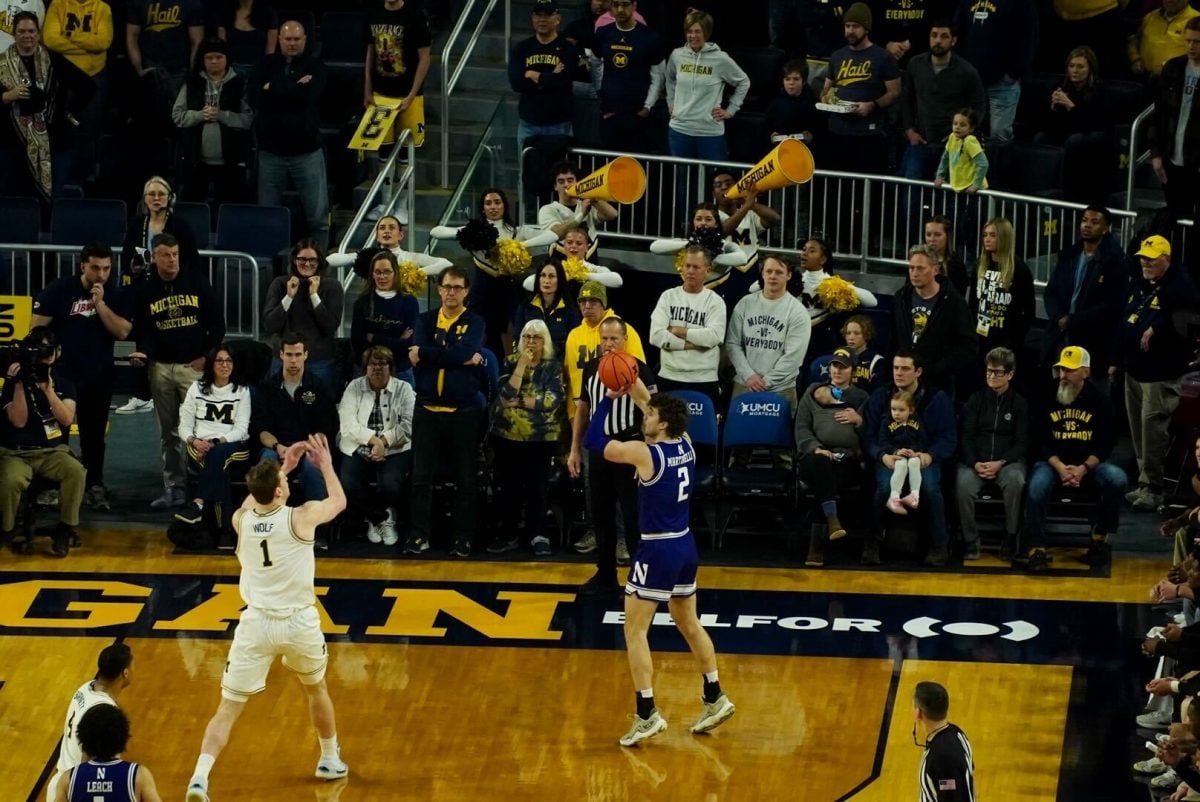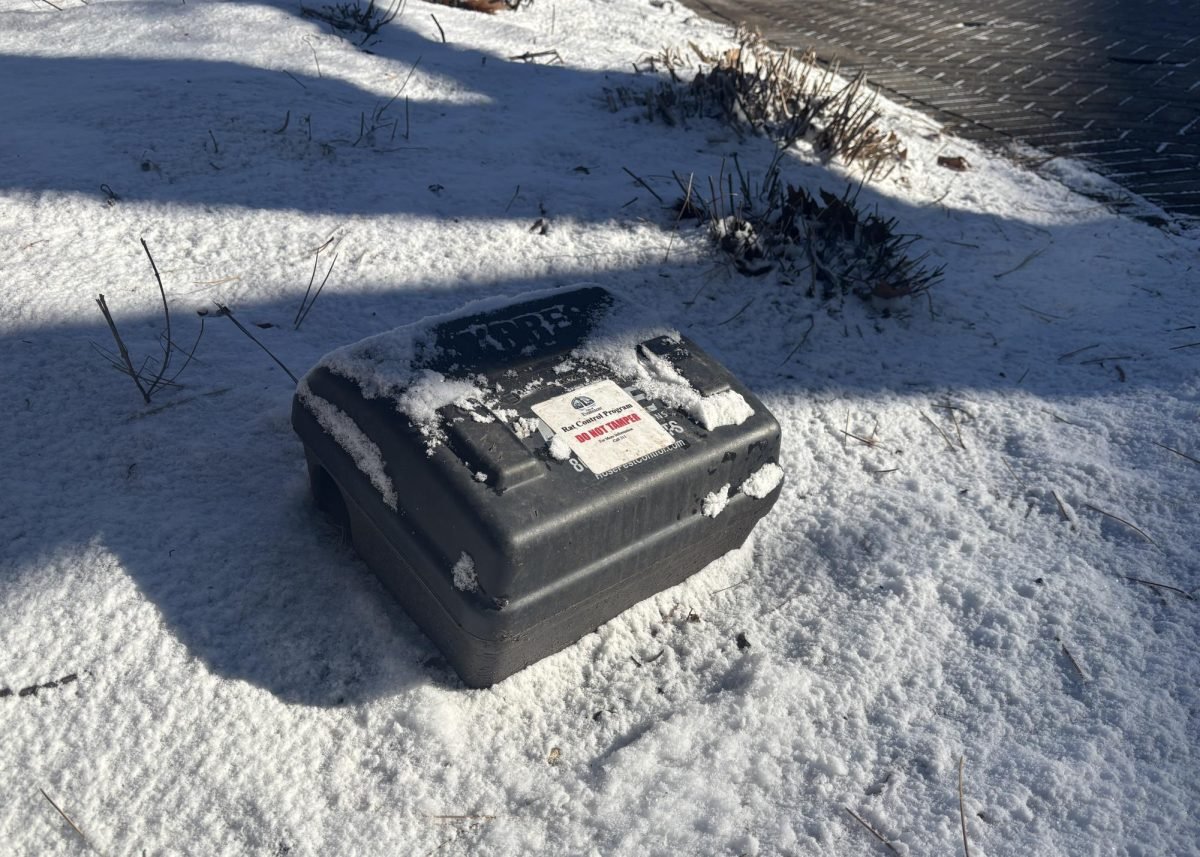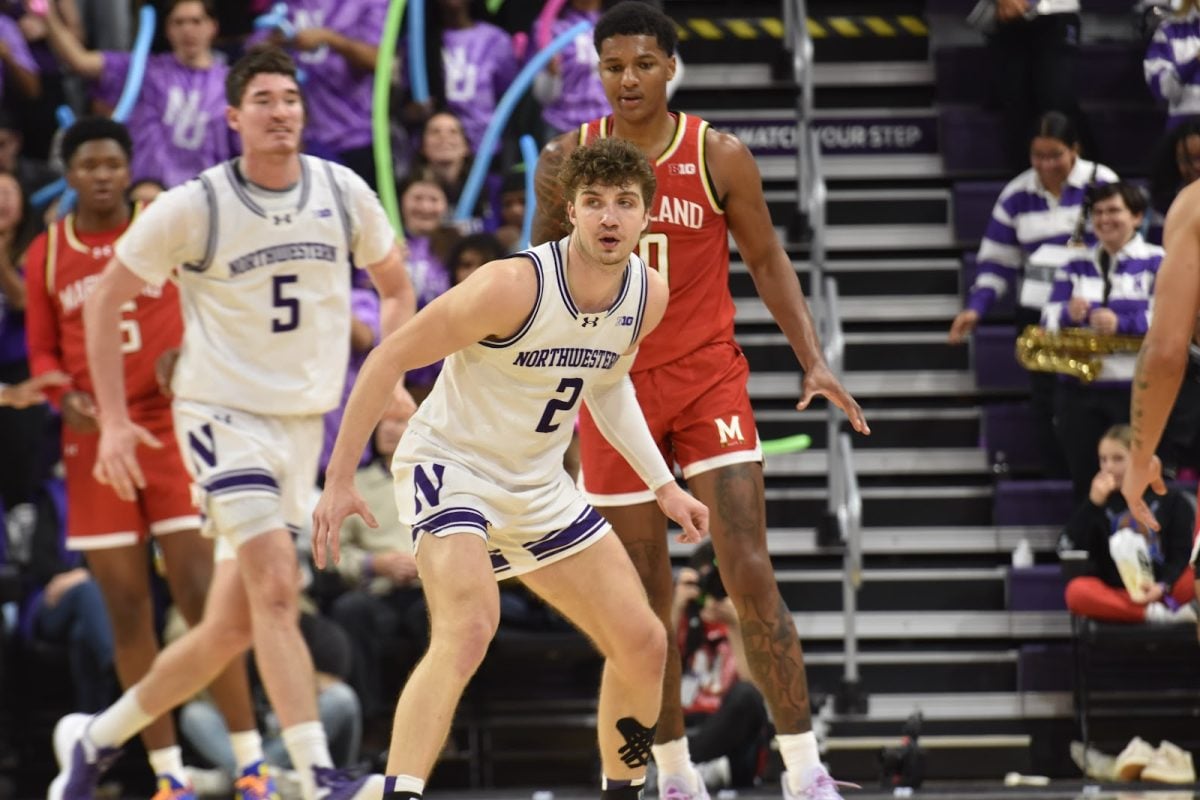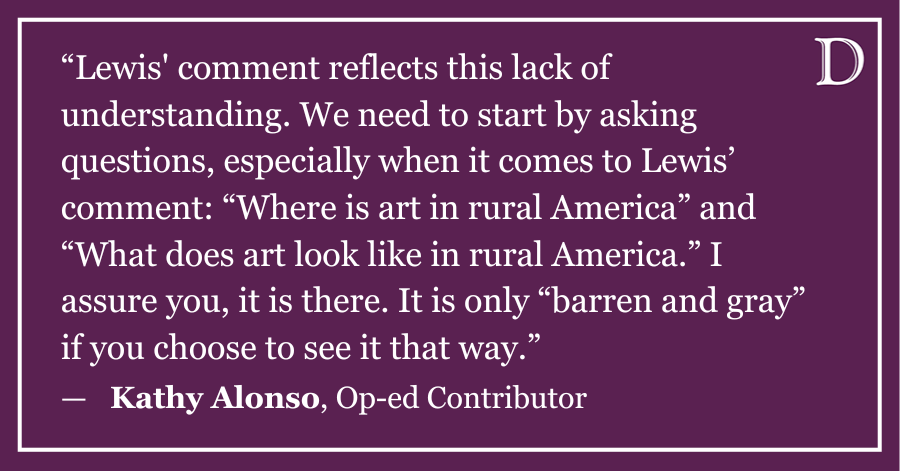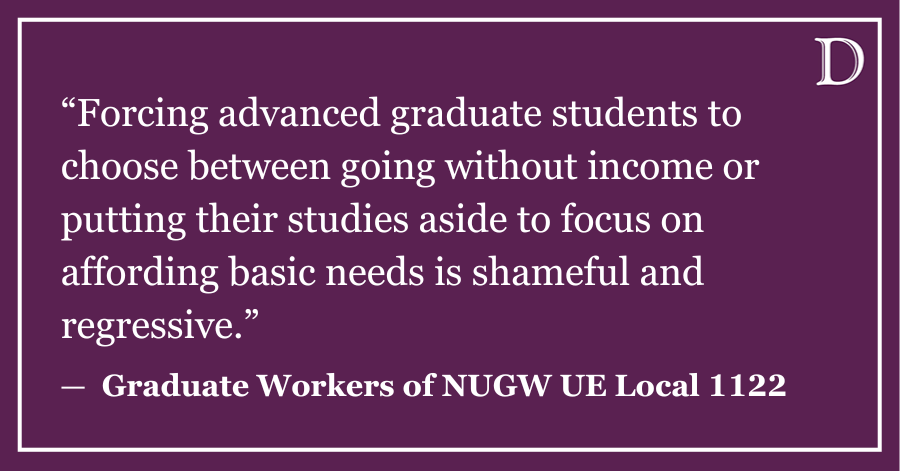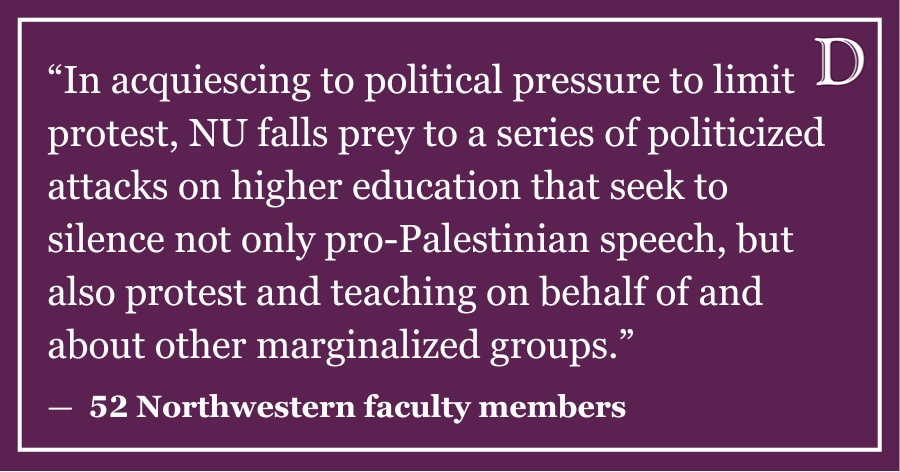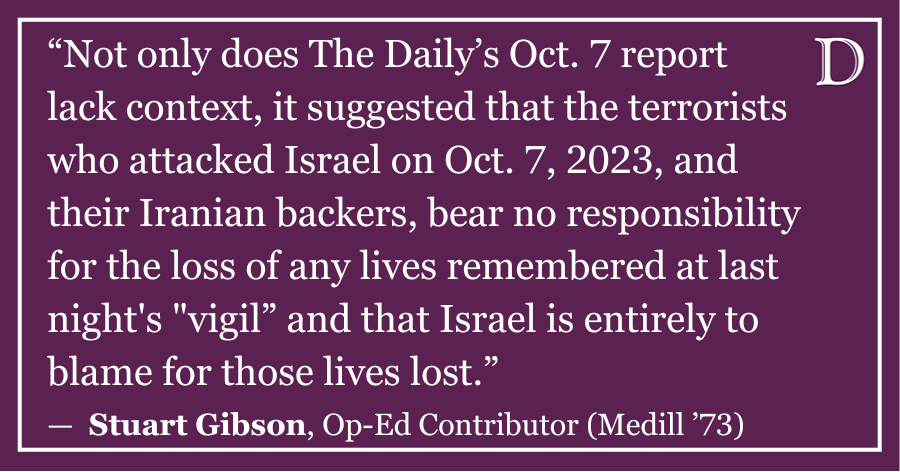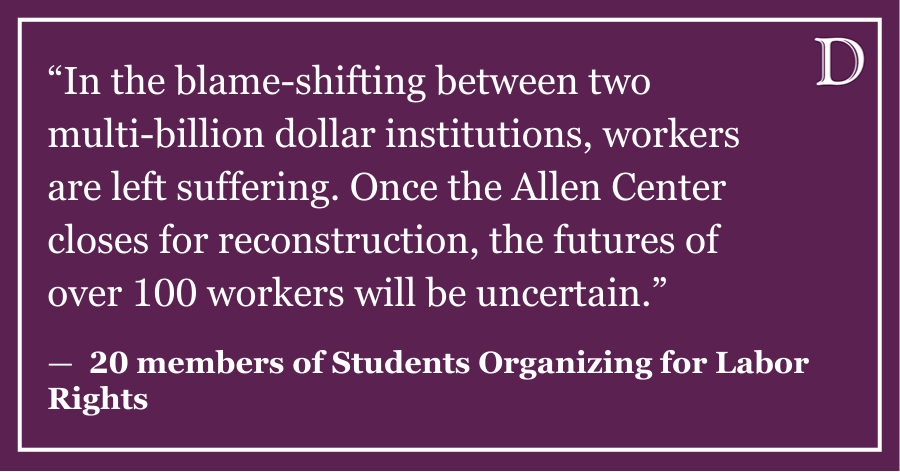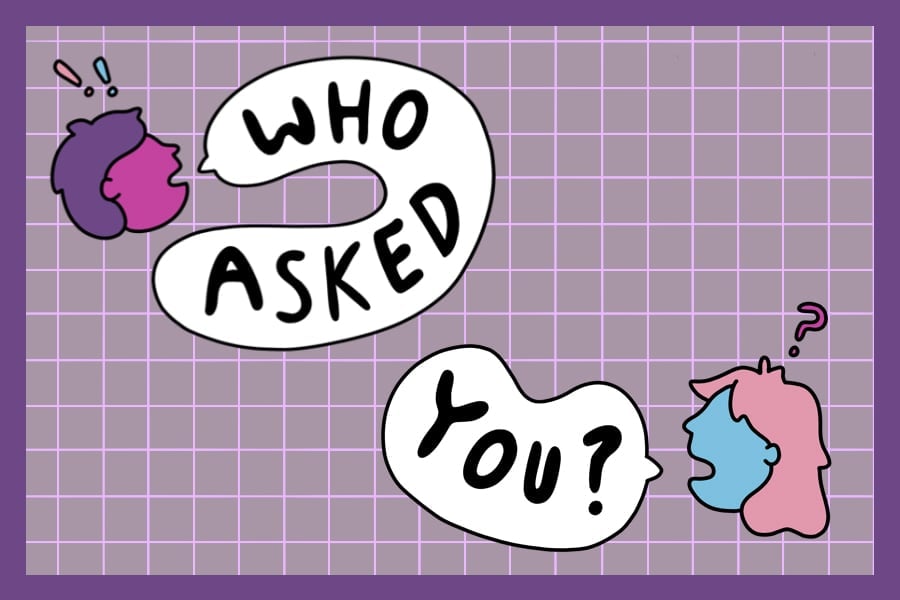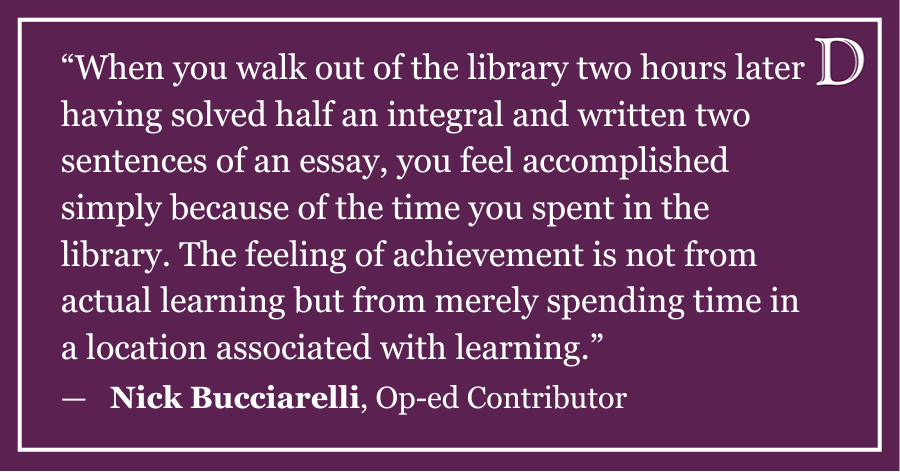On college campuses nationwide, students and organizations claiming to speak for all Jews have pushed a harmful agenda that argues criticizing Israel and calling for a free Palestine is inherently antisemitic. We are a group of Jews who write to condemn institutions like Northwestern for their failure to account for the breadth of opinion in the Jewish community.
We argue that while safety from antisemitism is a constant concern for the Jewish community, it should in no way take priority over conversations about the loss of more than 24,000 Palestinian lives in what some United Nations experts have called a genocide in Palestine.
Northwestern’s administration conflates criticism of Zionist beliefs with harassment of Jewish students for their ethno-religious identity. We saw this in President Schill’s email describing the phrase “from the river to the sea, Palestine will be free” as promoting the genocide of Jews.
To argue that this slogan calls for the mass murder of Israelis fails to acknowledge the suppression of freedom for Palestinians who have been illegally occupied under international law and subjected to cruelty at the hands of a government that is not their own. This misrepresentation creates an environment where pro-Palestinian speech is actively suppressed.
Across the country, we have seen groups that advocate for the freedom of Palestinians and criticize the state of Israel silenced or even banned. As Jews who do not support Israel’s occupation of Palestine and the government’s apartheid of Palestinians, we feel a responsibility to support these groups and express solidarity with Northwestern’s Students for Justice in Palestine.
We cannot sit idly by while atrocities are being committed in our name. Nor can we watch as the claim of antisemitism is cheapened to stifle dissent. Even calls for a ceasefire — what should be a necessary, pro-peace statement — have been criticized as “ignoring the context” or condoning Hamas. But how can the level of bloodshed we are witnessing in Gaza create peace? De-escalation, even without a clear idea of what postwar justice looks like, is better than wanton destruction and vengeance.
As Jews, we are all too familiar with the trauma of genocide — many of us are directly connected to the horrors of the Holocaust. This is precisely why we have a responsibility to speak out against genocide in all forms. To say “never again” applies to today. It requires standing up for the Palestinians that Israel has killed, the thousands more presumed dead, the hundreds of thousands currently starving and the millions forcefully displaced.
It is within this context that we call upon University leadership to protect the freedom of speech of students advocating for Palestinian liberation with the same fervor as any other student group on campus.
We call for the created President’s Advisory Committee On Preventing Antisemitism and Hate to be transparent in its dealings and to uplift marginalized campus voices, investigating serious cases of Islamophobia and anti-Palestine hate along with antisemitic incidents on campus.
Northwestern’s history of institutional antisemitism is painful and undeniable. Until 1964, Northwestern had admissions quotas on Jewish students, limiting their presence on campus. The first and most obvious step in combating antisemitism would be providing an official definition of it, something Northwestern has not done to this day.
While it is key for the commission to define antisemitism, as Jewish students, we warn and preemptively reject the adoption of definitions that conflate and fuse anti-Zionism with antisemitism in order to stifle criticism of Israel. In particular, we join the ACLU, B’Tselem, Human Rights Watch, Amnesty International and more than 100 other Israeli and non-Israeli experts and groups in calling against the adoption of the International Holocaust Remembrance Alliance definition of antisemitism.
Using this definition would effectively ban the use of words such as ‘apartheid’ in any campus discourse about Israel. We worry that Jewish identity has become entangled with unequivocally supporting the modern state of Israel. We repudiate the idea that these are inextricably linked, and we do not believe that our own safety should come at the expense of others.
It must be recognized that Zionism itself is not a solution to antisemitism. The Zionist movement routinely allies itself with conservative, antisemitic figures who support Israel. This past November, the Washington March for Israel featured Pastor John Hagee, an Evangelical Christian with a known history of antisemitic comments.
Additionally, the premise that Jews will only be free with the existence of an ethno-nation state absolves all other countries of the responsibility of combating antisemitism within their borders. Antisemitism must be combated, but when legitimate criticism of Israel is declared antisemitic, the fight against antisemitism is severely weakened.
We reject zero-sum thinking that the freedom of one group is contingent upon the suppression of another. We can empathize with fellow Jews in their desire for a safe space for our people after a long history of persecution. However, safety from antisemitism and safety from Islamophobia are mutually compatible ideas and should be understood as shared goals against a mutual force of oppression.
And for those who believe Palestine is already free, or that Palestine only needs to be freed from Hamas, we beg you to look beyond mainstream media sources, turn to Palestinian journalists on the ground and listen to Palestinians demanding liberation from Israeli oppression. Nothing absolves Israel of its violations of international law.
As college students thousands of miles away from the actual bombing in Palestine, we recognize our privilege in being able to discuss these ideas in op-eds and classrooms. We ask our fellow American Jews to decenter themselves from the conversation and turn their focus to Palestinian voices.
As Jews, now and forever, we seek safety from antisemitism. However, we recognize that this need is not more pressing than (and cannot occur in the absence of) the safety of Palestinians in Gaza, the West Bank and the world.
Throughout this piece, we refer frequently to Israel’s crimes and occupation. The persistent breaches of international law and UN resolutions by Israel have been well documented by many sources, and we encourage you to examine the research of B’Tselem, Committee to Protect Journalists, Amnesty International’s report on apartheid and UN Human Rights Watch.
In solidarity,
Northwestern Jewish Students for Palestine
Signed:
Evgeny Stolyarov
Lauren Baker
Isabelle Butera
Evan Carman
Skye Tarshis
Maddie Southwell
Josh Fleckner
Mayán Alvarado-Goldberg
Ruslana Lichtzier
Dan Murrieta
Andie Tipton
Austin Segal
Alexis Schwartz
Sophia Mitton-Fry
Lilah Weisman
Elliot O
Claire Schwartz
Five anonymous students
If you would like to respond publicly to this op-ed, send a Letter to the Editor to opinion@dailynorthwestern.com. The views expressed in this piece do not necessarily reflect the views of all staff members of The Daily Northwestern.

